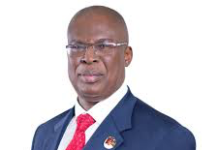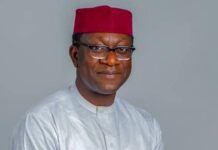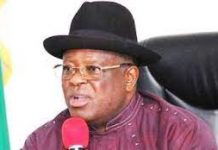Nigeria, Siemens Push Ahead with $2.2bn Power Plan to Transform Economy
By Kabir Akintayo
President Bola Tinubu on Monday reaffirmed his administration’s commitment to the full implementation of the $2.2 billion Presidential Power Initiative (PPI), being executed in partnership with Siemens Energy of Germany, as part of efforts to strengthen Nigeria’s electricity supply and drive economic transformation.
According to a statement by Bayo Onanuga, Special Adviser to the President on Information and Strategy, the President made the pledge during a meeting with a delegation from Siemens Energy, led by Dietmar Siersdorfer, Managing Director for the Middle East and Africa, at the State House, Abuja.
Tinubu said his administration was “taking power very seriously” to enhance livelihoods, boost industrialisation, and expand opportunities across key sectors of the economy.
“There is no industrial growth or economic development without power,” the President said. “Our education, healthcare, and transportation all depend on energy, and without it, our objectives are impossible. We appreciate the partnership and the progress made so far, but we must accelerate our efforts.”
The meeting was attended by Vice President Kashim Shettima, Coordinating Minister of the Economy and Minister of Finance Wale Edun, Minister of Power Adebayo Adelabu, and Special Adviser on Energy Olu Verheijen.
President Tinubu directed that some major transformer substations under the PPI be expanded from two to three phases to further stabilise power supply nationwide. He assured the Siemens team of continued government support and resources to ensure timely completion of the project, noting that the initiative would position Nigeria as a regional energy hub and a model for economic revival in Africa.
Read Also:
Power Minister Adebayo Adelabu said the power sector had achieved significant reforms, including decentralisation and liberalisation, with the signing of the Electricity Act 2023 and the development of a National Integrated Electricity Policy for the first time in 24 years. These reforms, he said, had attracted more than $2.2 billion in new investments and led to the activation of 15 state electricity markets.
“Under the Pilot Phase (Phase Zero), Siemens Energy has delivered and commissioned 10 units of 132/33kV mobile substations, three 75/100MVA transformers, and seven 60/66MVA transformers nationwide, adding 984 megavolt-amperes (MVA) of transmission capacity to the national grid,” Adelabu said.
He added that the Engineering, Procurement, and Construction (EPC) contract for Phase One, Batch One — covering key substations in Abeokuta, Offa, Ayede-Ibadan, Sokoto, and Onitsha — had commenced, with two of the five substations expected to be completed by the end of 2026.
According to him, the next stage, Phase One–Batch Two, will include the construction and upgrade of 16 substations (six brownfield and ten greenfield), expected to add about 4,104 megawatts (MW) to the grid.
Finance Minister Wale Edun said the PPI would significantly improve Nigeria’s ease of doing business, create jobs for young people, and reduce poverty through industrial growth and improved electricity reliability.
In his remarks, Siemens’ Siersdorfer commended the Tinubu administration’s commitment and said the company was determined to ensure timely delivery of the project. He disclosed that Siemens was building a training centre to equip Nigerian engineers, promote local content, and enhance technology transfer.
“The PPI is not just a project but a platform for long-term development and prosperity,” Siersdorfer said, adding that the initiative would transform Nigeria into a regional power hub while directly engaging local professionals and creating thousands of indirect jobs in host communities.
A representative of the German Ambassador to Nigeria, Johannes Lehne, also pledged Berlin’s continued support for Nigeria’s power sector transformation under the PPI framework.
The $2.2 billion Presidential Power Initiative, launched in 2019, aims to modernise Nigeria’s electricity grid, expand transmission capacity, and deliver stable, affordable power to homes and industries nationwide.

















